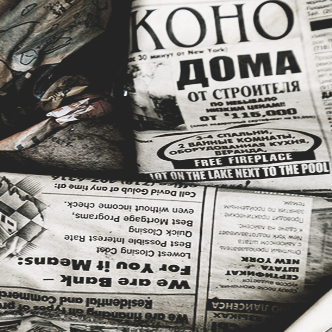by Marcello Greco – translated by Roberta Aiello

In the 2013 Press Freedom Index, published by Reporters Without Borders, Russia slips down to number 148, six positions lower than last year. The drop is related to the return to power of Vladimir Putin, now in his third term as president, which has led to an increase in the repression of dissent and internal opposition.
It is an unmistakable fact that certifies the widespread lack of freedom in the Russian Federation, where the press struggles to be free, is forced to reckon with strong censorship and where too often journalists are subject to intimidation, threats and assaults.
However, something seems to have changed. In the last year and a half, Russia has experienced a new era of street protests. Thousands of people took to the streets in Moscow and other major cities in the country to ask for fair elections. They protested in the aftermath of the vote for the Duma, the Russian parliament, in December 2011 and again in March 2012, on the occasion of the re-election of Vladimir Putin.
There is a heterogeneous movement, which includes no globals, liberals, nationalists, socialists, greens and activists for human rights. It is a composite universe that gave rise to a wave of unprecedented protests. However, it has been unable to transform itself into an effective and credible political proposal.
These issues will be discussed in two panels at the International Journalism Festival, one on Friday 26 April and one on Saturday 27 April.
The first panel is dedicated to the protest movements, which began in the last few months in Russia, and the role of the media. The second panel is concerned with Russian investigative journalism analyzed by some of the most skilled professionals in the field.
The speakers on the first panel will be Natalia Sindeeva, founder and general director of TV Rain, an independent TV station among the first to offer full coverage of the mass protests of 2011; Maxim Trudolyubov, opinion page editor of Vedomosti; Anna Zafesova, journalist of La Stampa; Oliver Carroll, editor of openDemocracy Russia.
The speakers on the second panel will be Roman Shleinov, journalist of Vedomosti and former investigative reporter for Novaya Gazeta, the newspaper where Anna Politkovskaya worked; Anastasiya Kirilenko, independent journalist and author of an investigation of a corruption case in which Vladimir Putin was involved when he was deputy mayor of St. Petersburg; Svetlana Reiter, winner of the Paul Khlebnikov Prize in 2012 for her articles about Pussy Riot and cases of torture in the Caucasus; Zygmunt Dzieciolowski, co-editor of openDemocracy Russia.
These events are organized in association with openDemocracy Russia and the Associazione Giornalisti Scuola di Perugia.


